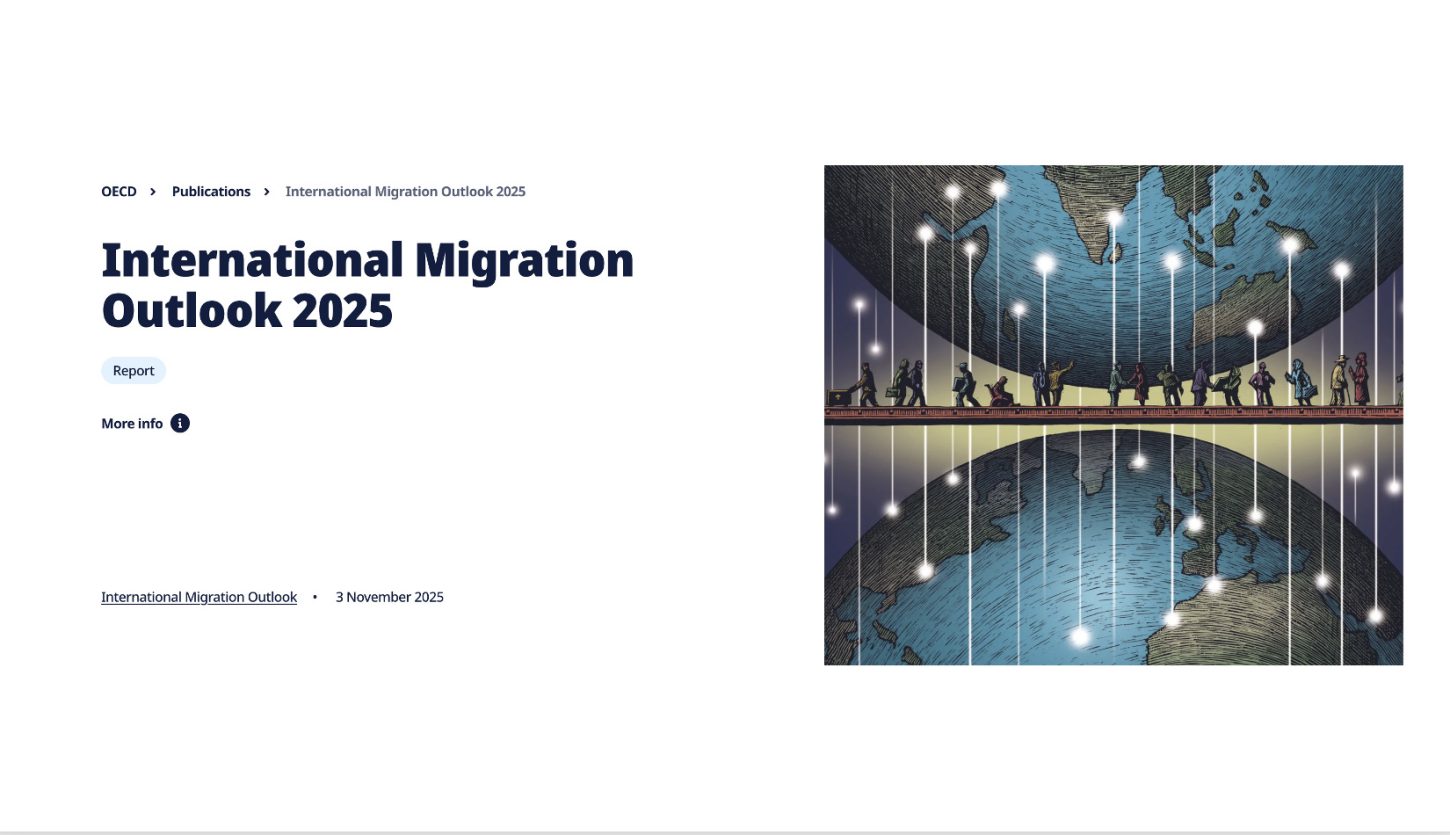The OECD International Migration Outlook 2025, published this week, provides important data on migrant workers but misses crucial opportunities to address labour exploitation and discrimination, TUAC finds. This is particularly concerning given the report’s estimation of a 34% initial earnings gap between migrant and native workers. This disparity is not merely temporary – a substantial portion persists throughout migrants’ careers as they appear unable to advance into higher-paying occupations. While highlighting these striking inequalities, the report’s treatment of exploitation is superficial, despite its widespread impact, and collective bargaining is entirely absent from the analysis.
The OECD’s own data reveals that nearly two-thirds of the immigrant earnings gap stems from concentration in lower-paying firms and sectors – with lower-paying sectors accounting for over one-third of the gap and lower-paying firms within sectors responsible for an additional quarter. The report offers minimal attention to how employers actively recruit migrant workers as a strategy to reduce labour costs.
"The OECD's findings on earnings disparities warrant serious attention, yet its policy recommendations overlook crucial solutions including collective bargaining and measures against workplace discrimination."
Trade unions emphasise that this form of labour market exploitation has severe consequences for individual workers, and undermines fair competition by placing responsible employers at a disadvantage. Over time, this dynamic can trigger a downward spiral of wage suppression and deteriorating working conditions across entire sectors. The absence of concrete policy recommendations to address labour exploitation represents a significant gap in the OECD’s analysis.
The report fails to adequately address the underlying drivers of rising international migration, including conflicts and civil unrest, climate change and environmental disasters, persecution and human rights violations, as well as widening inequality between countries. The Outlook also overlooks measures aimed at improving rights and living standards globally.
TUAC highlights that the high concentration of migrants in low-productivity and low-paid jobs has far-reaching implications that the report does not examine, including lower pension contributions, reduced access to work-related training, precarious employment contracts, irregular working hours, greater exposure to health risks, and less favourable leave entitlements.
Trade unions express particular concern that collective bargaining, one of the most effective mechanisms for reducing inequalities in wages and working conditions, receives no mention in the report. This omission is particularly concerning given that migrant workers are significantly overrepresented in workplaces without collective agreements.
While recommending action against housing discrimination to address immigrant overqualification, the report proposes no parallel measures against ethnic discrimination in hiring, career advancement, and wage-setting. TUAC points out that the OECD’s own findings show that migrants do not move to higher-paying occupations over time. Instead, they often get stuck in low-wage job traps. Trade unions call for future OECD analyses to include robust policy recommendations on preventing exploitation, strengthening collective bargaining, and combating workplace discrimination.
Image credit: OECD

